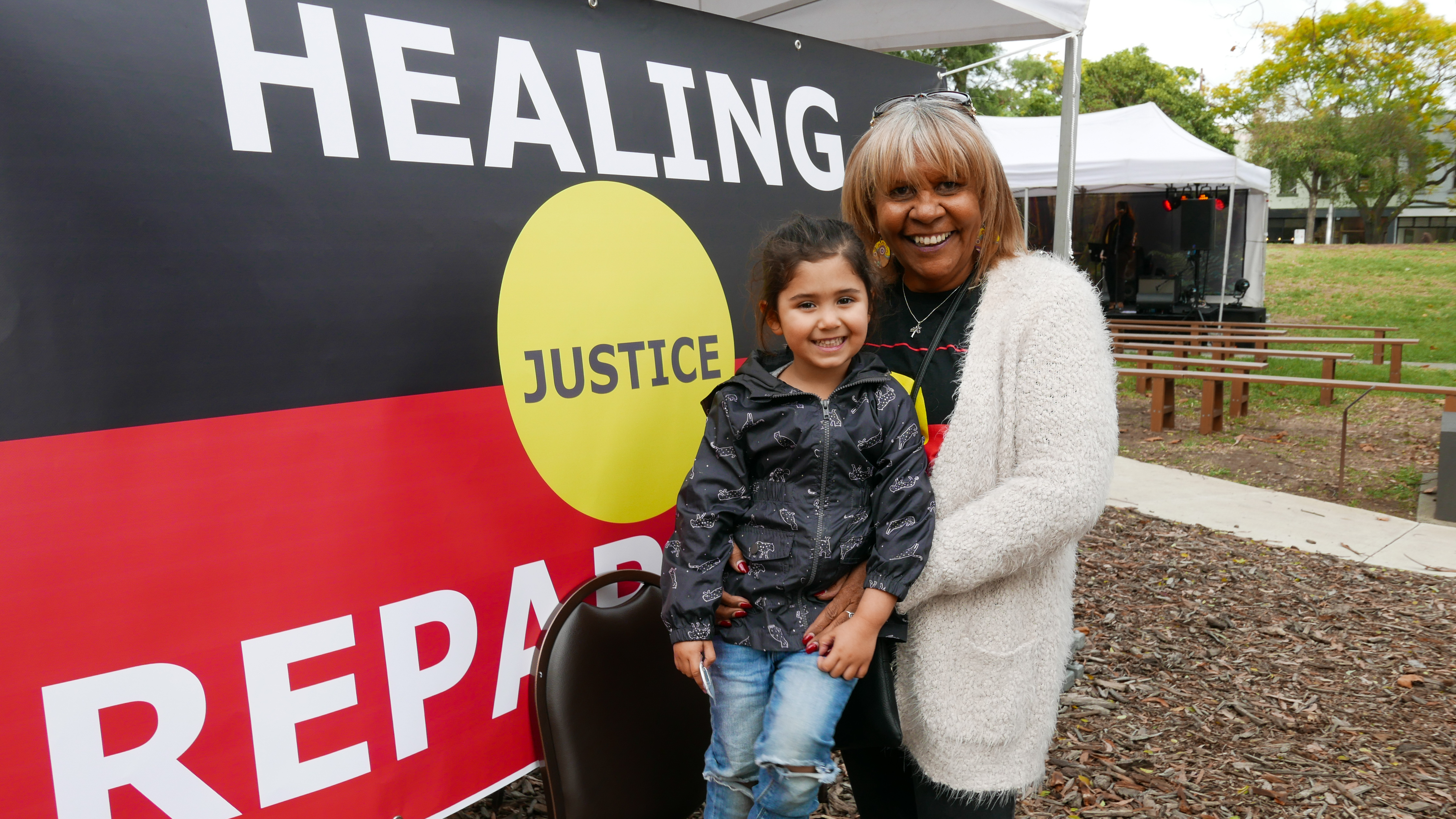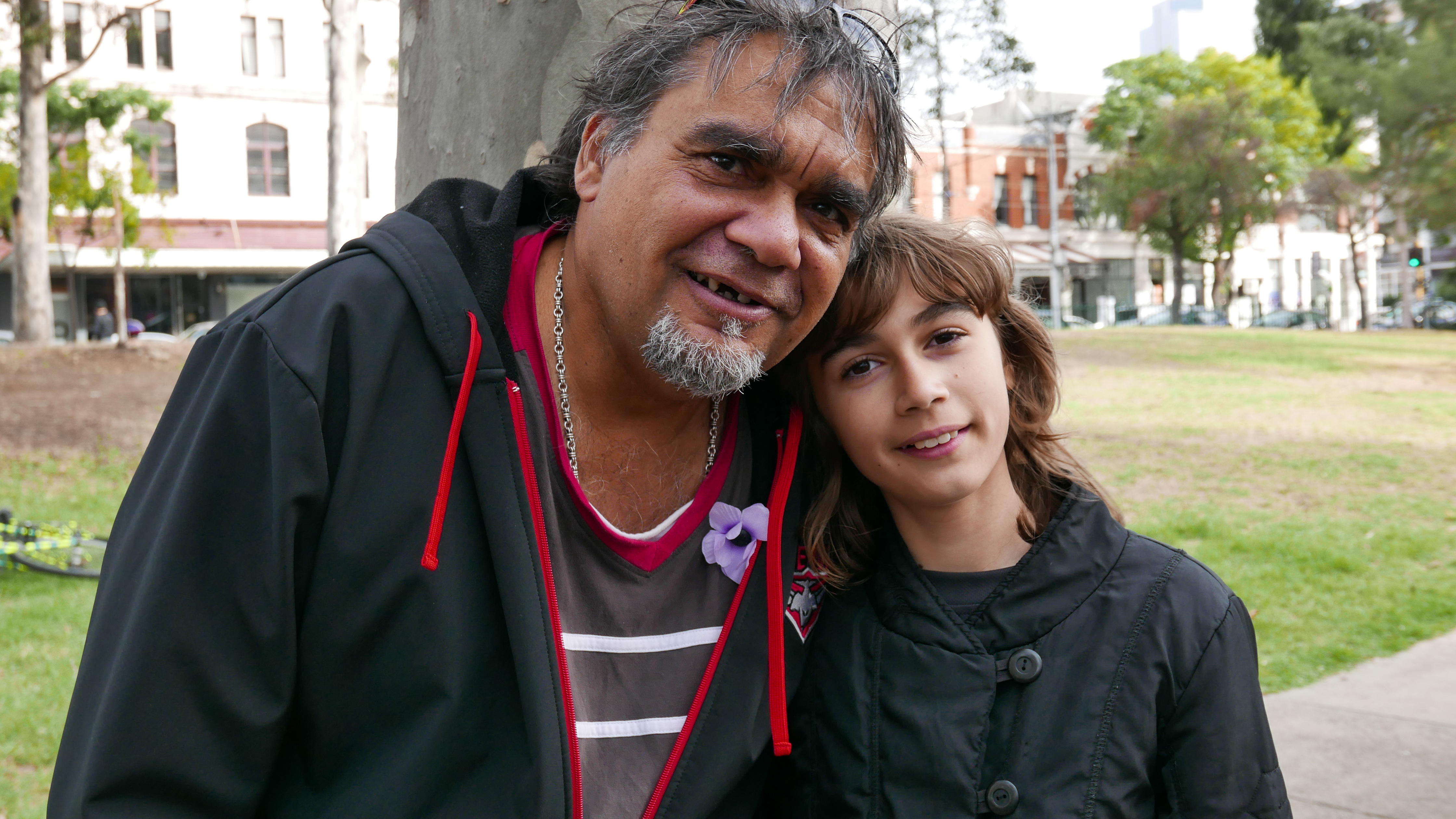On a cold, blustery day in Melbourne’s inner-city, the stolen children gather together by a fire. The smoke envelopes them in a ‘welcome’ ceremony, the leaves of native gum trees are burnt in a cleansing ritual.
They gathered together with their friends, families and supporters to commemorate Sorry Day, the 26th May. They are the Aboriginal people who were removed from their mothers and families, as part of the governments dogged commitment to assimilation.
Sorry Day marks a period in time, when Aboriginal and Torres Strait Islander children from across Australia were removed from their families, ostensibly to enforce white, western values upon the Indigenous population.
Yet for many of the children removed, the past is still present.
“We’ve still got a long way to go. There’s so much hurt and pain within us,” said Eva Jo Edwards, reflecting on the ongoing trauma she faces as a member of what is now known as the Stolen Generations.
As children, they were raised in institutions, foster homes, orphanages or adopted by white families. Many suffered physical and sexual abuse, some would never see their Aboriginal families again, and all suffered from a loss of culture and connection to their heritage.
Eva Jo was removed from her mother at age 5, and spent the next 13 years in an institution in Melbourne’s affluent eastern suburbs. Tragically she lost her connection to her brother; he was removed when only 9 months old. The little boy grew up, only to die by suicide from what his sister believes, was the trauma he experienced.
Eva Jo reflects on the meaning of Sorry Day.
“It always becomes a solemn day. You think of those that have passed on to those who are still really struggling and still trying to connect with family and community.”
Eva Jo was 15 when she eventually reunited with her mother, who was by then a broken woman after losing her children, turning to alcohol to deal with the trauma. Sadly, Eva Jo's mother passed away not long after reconnecting with her daughter. The commemoration of Sorry Day began in 1997, after the seminal report Bringing Them Home was tabled in Australian parliament. The report investigated the endemic removal of Aboriginal and Torres Strait Islander children throughout the country.
The commemoration of Sorry Day began in 1997, after the seminal report Bringing Them Home was tabled in Australian parliament. The report investigated the endemic removal of Aboriginal and Torres Strait Islander children throughout the country.

Eva Jo Edwards, member of the Stolen Generations with her grand-daughter Evie Rae. Source: Ali MC
For many non-Indigenous Australians, the findings of Bringing Them Home revealed a dark side to the country’s history that few had been aware of.
Yet despite the evident trauma experienced by people such as Eva Jo, the Australian government has yet to offer compensation to the victims.
More than 20 years on from the inaugural Sorry Day, people such as Eva Jo are still fighting for justice.
“We need to keep this agenda to the forefront,” she says “ensuring that we are not forgotten.”
“We are still looking at reparations, redress and compensation of just being removed. So when are [the government] going to look at this?” Andrew Travis is a self-confessed “angry blackfella.”
Andrew Travis is a self-confessed “angry blackfella.”

Member of the Stolen Generations, Andrew Travis with his daughter Tahlara. Source: Ali MC
He was removed from his mother and brought up in a non-Indigenous family, where he suffered various forms of abuse.
Andrew Travis carries the surname of his adopted family. With no knowledge of his family name, many years were added to his search for his biological family. Andrew turned to Link Up, an organisation that assists people to reunite with their biological families.
By the time he learned his biological mother’s name, he was a 45 year man.
“I went to Link Up and they actually did the search for me and found out who my mum was.”
While Andrew was able to reunite with his mother, he also received some bad news.
“Apparently I had brothers who have all passed away. I missed out on a lot with my real family.” Andrew says that coming together with other members of the Stolen Generations on Sorry Day is “a healing. It’s good to know it wasn’t just me.”
Like Eva Jo, Andrew too expects the government to “accept responsibility.”
“I know blackfellas who couldn’t take it and passed away, because they couldn’t deal with all the issues of the Stolen Generations. People don’t like to talk about it, but it happened.”
National Sorry Day is held on 26 May
Ali MC (Alister McKeich) is a writer, photographer and legal professional who holds a Masters in Human Rights Law. His work documents global human rights issues, and he has had the privilege of working with a number of Aboriginal communities here and internationally. Follow

